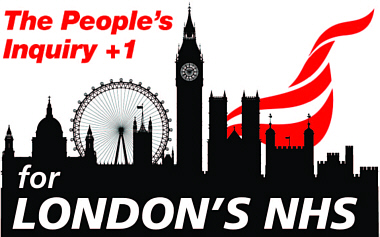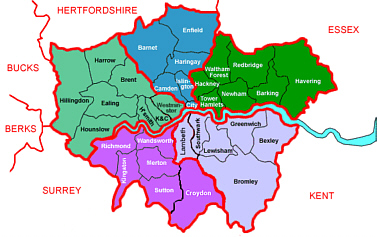  |
||
The People's Inquiry - StatementThe NHS in England is facing a two-way squeeze driven by "cost savings" and spending cuts, and by the coalition government's Health & Social Care Act. The London and Eastern Region of Unite the Union is especially concerned about what we see as a growing crisis in London. When David Cameron's coalition government came to office in 2010, the future of more than half of London's 40 acute and specialist hospitals was hanging in the balance as the capital's NHS chiefs continued a relentless process of reviews and reconfiguration, aiming to generate £5 billion in savings in the capital alone by 2014 towards a national target of £20 billion. Since then there has been no stability for staff or patients. Unite members working in health services report things have got much, much worse. As the financial squeeze on the NHS has tightened, and the entire structure of the NHS has been fundamentally changed by the 2012 Act, the debate has raged in all parts of the capital over the shape of health care services, and the capacity of any new services to meet growing health needs of London's rising 7.5 million population, or to address the stubborn problem of health inequalities across the capital. Many of the new Clinical Commissioning Groups (established in April 2013) and hard-pressed NHS trusts alike are facing financial constraints or deficits, while one major Trust, South London Healthcare, last year became the first to subjected to the "unsustainable provider regime", although a crucial part of that package, the downgrading of the neighbouring Lewisham Hospital, has been successfully challenged in the courts. With no light at the end of the financial tunnel, analysts project continued, increased, financial pressures on the NHS through at least to 2020. There are also concerns over privatisation. What began as experiments with markets and competition has now been transformed by the Health & Social Care Act and its Section 75 Regulations into a legal requirement to put more and more NHS services out to competitive tender. The increased managerial costs will divert more resources and management attention away from front line care, and open up new opportunities for profit-seeking private companies to carve off slices of the NHS budget, destabilising existing NHS services. So what are the consequences in London for services, for patients, for the wider public - and for the staff who deliver front line care, many of them fearing for their jobs, and facing continued increases in workload? Unite has decided to find out, and to establish a People's Inquiry into London's NHS. It has assembled a distinguished panel to assess the evidence, and will draw on the widest possible range of information to develop a picture of the intersecting issues across the capital, and how it affects the staff and patients at the sharp end. The Inquiry is open to evidence from all sides: it is inviting written contributions from ALL groups involved in the NHS changes - campaigns, pensioners' organisations or patient groups, NHS trust boards, CCGs and NHS England commissioners, GPs, London boroughs, charities, non-profit providers, community organisations - even the private sector. We are especially keen to hear from health workers - no matter that their job or pay band, or what trade union or professional body they may belong to. We will also be conducting a survey of health workers, online and in workplaces, to develop the widest possible picture of the issues and concerns they face: again this is open to workers who are members of any organisation or none. If you have a view, we want to hear about it. The Panel is keen to hear people's views at first hand. So five public sessions will visit the five main sectors of London, to hear at first hand from local people, campaigners and health workers, politicians, NHS commissioners and trust managers. Additional public sessions will also deal with London-wide issues. | ||
|
Copyright © 2015 The People's Inquiry • The views on this website do not necessarily reflect the views or policies of Unite the Union
| ||